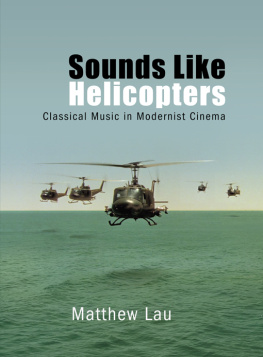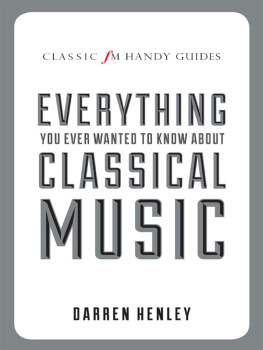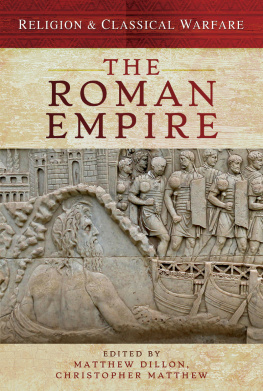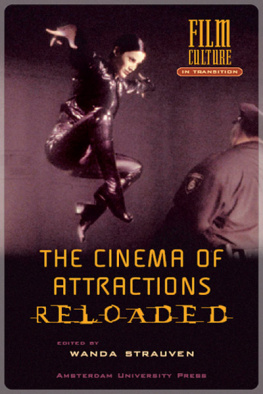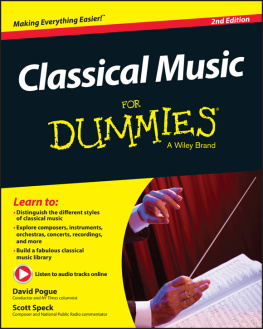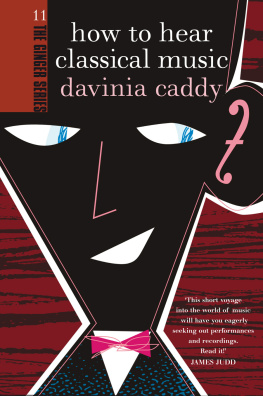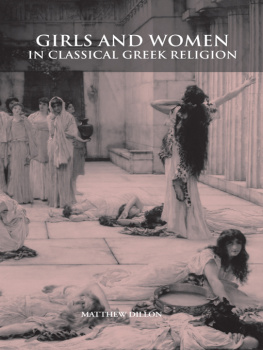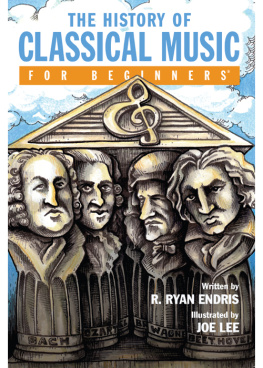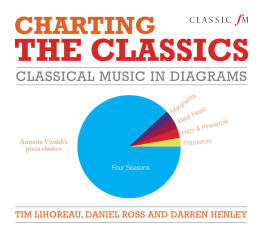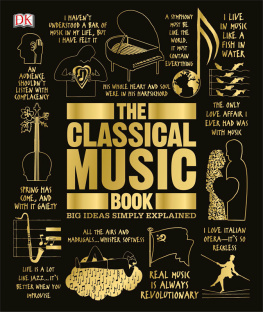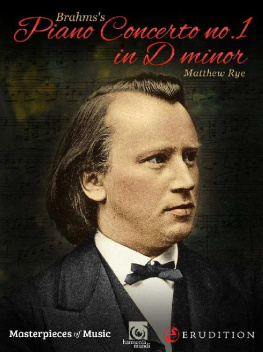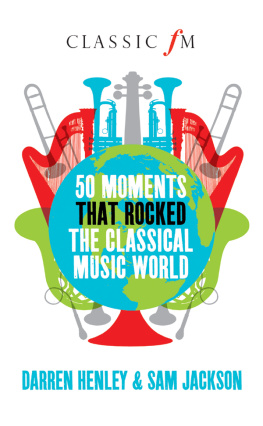Matthew Lau - Sounds like helicopters : classical music in modernist cinema
Here you can read online Matthew Lau - Sounds like helicopters : classical music in modernist cinema full text of the book (entire story) in english for free. Download pdf and epub, get meaning, cover and reviews about this ebook. year: 2019, genre: Non-fiction. Description of the work, (preface) as well as reviews are available. Best literature library LitArk.com created for fans of good reading and offers a wide selection of genres:
Romance novel
Science fiction
Adventure
Detective
Science
History
Home and family
Prose
Art
Politics
Computer
Non-fiction
Religion
Business
Children
Humor
Choose a favorite category and find really read worthwhile books. Enjoy immersion in the world of imagination, feel the emotions of the characters or learn something new for yourself, make an fascinating discovery.
- Book:Sounds like helicopters : classical music in modernist cinema
- Author:
- Genre:
- Year:2019
- Rating:3 / 5
- Favourites:Add to favourites
- Your mark:
- 60
- 1
- 2
- 3
- 4
- 5
Sounds like helicopters : classical music in modernist cinema: summary, description and annotation
We offer to read an annotation, description, summary or preface (depends on what the author of the book "Sounds like helicopters : classical music in modernist cinema" wrote himself). If you haven't found the necessary information about the book — write in the comments, we will try to find it.
Matthew Lau: author's other books
Who wrote Sounds like helicopters : classical music in modernist cinema? Find out the surname, the name of the author of the book and a list of all author's works by series.
Sounds like helicopters : classical music in modernist cinema — read online for free the complete book (whole text) full work
Below is the text of the book, divided by pages. System saving the place of the last page read, allows you to conveniently read the book "Sounds like helicopters : classical music in modernist cinema" online for free, without having to search again every time where you left off. Put a bookmark, and you can go to the page where you finished reading at any time.
Font size:
Interval:
Bookmark:

Sounds Like Helicopters

Sounds Like Helicopters
Classical Music in Modernist Cinema
Matthew Lau

Cover: Apocalypse Now (1979). Zoetrope Studios / Photofest.
Published by State University of New York Press, Albany
2019 State University of New York
All rights reserved
Printed in the United States of America
No part of this book may be used or reproduced in any manner whatsoever without written permission. No part of this book may be stored in a retrieval system or transmitted in any form or by any means including electronic, electrostatic, magnetic tape, mechanical, photocopying, recording, or otherwise without the prior permission in writing of the publisher.
For information, contact State University of New York Press, Albany, NY
www.sunypress.edu
Library of Congress Cataloging-in-Publication Data
Names: Lau, Matthew, 1978 author.
Title: Sounds like helicopters : classical music in modernist cinema / Matthew Lau.
Description: Albany : State University of New York Press, [2019] | Series: SUNY series, horizons of cinema | Includes bibliographical references and index.
Identifiers: LCCN 2018052658 | ISBN 9781438476315 (hardcover : alk. paper) | ISBN 9781438476322 (ebook)
Subjects: LCSH: Motion picture musicHistory and criticism.
Classification: LCC ML2075 .L36 2019 | DDC 781.5/42dc23
LC record available at https://lccn.loc.gov/2018052658
10 9 8 7 6 5 4 3 2 1
For Mom and Dad,
who took us to the movies and violin lessons
Every new development added to the cinema must, paradoxically, take it nearer and nearer to its origins. In short, cinema has not yet been invented!
Andr Bazin (The Myth of Total Cinema 21)
Contents
Illustrations
Acknowledgments
Joshua Wilner, Wayne Koestenbaum, and Peter Hitchcock supported this project when it was a dissertation and have given valuable advice since. Mark Schiebe and Lily Saint read the earliest drafts. Leah Anderst helped with the revisions when it was almost done.
Eli Spindel and my friends at the String Orchestra of Brooklyn have forced me to keep practicing just to play half as well as they do. Roy Malan has been my most generous mentor of all.
The CUNY Graduate Center awarded me a dissertation fellowship in 201011. The CUNY Research Foundation funded this work with a book completion award for 201920. The English Department at the CUNY Graduate Center supported my general intellectual development. My colleagues and students at Queensborough Community College have challenged and inspired me to mature as a teacher and writer.
Finally, to my parents, Tom and Diane Lau, and my brother David Lau, my sister-in-law Laura Martin, and my nephew, the genius, Carlos Martin Lau, you all know how much you mean to me. Like Cordelia, I can only love and be silent.
Introduction
A Fundamental Continuity
It Scares the Hell Out of the Slopes
W AGNERS R IDE OF THE V ALKYRIES in Apocalypse Now (1979) is emblematic of the complexity of the role played by classical music in modernist cinema. A complexity that is thus far underappreciated by modern film music scholarship and criticism. As Colonel Kilgore (Robert Duvall) explains it in the film, he plays Wagner from loudspeakers attached to helicopters during an absurd mission to capture the surf break at Charlies Point because it inspires his men and scares the hell out of the slopes. But rather than intimidating the Vietcong, Wagner lets them know Kilgore and company are coming. Though the music makes victory seem inevitable for Kilgores cavalry, in the ensuing battle several helicopters are downed, and the enemy is only subdued when air support napalms the jungle perimeter. Kilgore wins the battle, but is less certain of winning the war. Someday, he muses shirtlessly before a surf, this war is gonna end.
The decision to use Wagner is often mistakenly credited to director Francis Ford Coppola and assumed to be an ironic allusion to D. W. Griffiths 1915 racist historical epic, The Birth of a Nation , and its use of the same music during its climactic Ku Klux Klan cavalry attack on African Americans (Smith 221, M. Cooke 427). In fact, it was Apocalypse Now s screenwriter and former NRA board member John Milius who chose Wagner for the films infamous helicopter assault sequence. Milius chose Wagner for his screenplay not just to satirize a war adrift or for the irony of the perceived contrast between the music and the machines, but because of the similarity he felt he heard between Wagners vanguard orchestral timbres and the sounds of helicopters (the emblematic modern vehicle for conventional military forces). An admirer of Wagners music, Milius observed archly in an interview with Coppola, Wagner just lends itself to helicopters for some reason.
Miliuss idiosyncratic perception underpinning Hollywoods signature image of the Vietnam War is therefore both ironicdrawing attention to itself in a foolish and surreal spectacleand appropriatein the way the helicopters sound and act like Wagners Valkyries as they administer death from above. Similarly, Coppolas sequence based on Miliuss screenplay, as a morally and politically ambivalent masterpiece and the films true heart of darkness, both satirizes and celebrates the war as a misguided excess of an empire. The Wagnerian soundtrack could not have been more fitting, for no other composer inspires harsher denunciations or greater reveries. Wagners legacy remains bitterly contested, with some rejecting his music as fundamentally anti-Semitic and fascist. So, too, if Hollywoods mystification of the conflict is any indication, the United States has yet to come to terms with the bitter legacy of the Vietnam War. Apocalypse s helicopter assault scene brings these disputes together without resolving or diminishing their arguments.
To paraphrase Walter Benjamin, Milius and Coppola used Wagner to capture the history of the Vietnam War not as it really happenedpsychological operations (psy-ops) involved playing rock music from helicopters, not Wagnerbut as it flashes up in our cultural memory at a moment of danger (Theses on the Philosophy of History 255). The moment of danger was the years just after the war ended when the struggle began to interpret it in Hollywood. Coppolas film contrasts with Hal Ashbys antiwar film Coming Home (1978), a love story set away from the battlefield among disillusioned, disabled veterans. Like Ashby, Coppola meant to criticize the war, but to Miliuss amusement and Coppolas frustration, the films signature helicopter assault scene has long since been repurposed as propaganda by the US military and has come to overshadow the film as a whole. As propaganda to inspire soldiers before battle, Wagners music makes the scene that much more convincing and enjoyable, making victory a foregone conclusion and giving the audience a heroic theme to hum.
When we enjoy Apocalypse Now s signature scene, the pleasure is similar to the ambivalent fascination with Wagners life and music. Our love of Wagner, music critic Joachim Kaiser argues, is as infected as the wound that is suffered by Amfortas, the sinful but ultimately redeemed leader of the knights of the grail in Wagners Parsifal (quoted in Geck xvii). The same could be said for the American publics fascination with Hollywood films about Vietnam. The love for such films is infected by the tragic consequences of the conflict itself. Like Wagnerians who go on loving his music despite his anti-Semitism and his musics co-optation by the Nazi regime, filmgoers enjoy films about Vietnam despite the troubling facts about the US intervention there. They enjoy them despite the fact that the war was fundamentally about preventing the democratic unification of Vietnam after its war of independence, despite the millions of lives lost in Vietnam and neighboring countries during the war, and despite the ongoing environmental damage from the use of chemical weapons and from aerial bombings campaigns of unprecedented scope (Hirschman et al.).
Font size:
Interval:
Bookmark:
Similar books «Sounds like helicopters : classical music in modernist cinema»
Look at similar books to Sounds like helicopters : classical music in modernist cinema. We have selected literature similar in name and meaning in the hope of providing readers with more options to find new, interesting, not yet read works.
Discussion, reviews of the book Sounds like helicopters : classical music in modernist cinema and just readers' own opinions. Leave your comments, write what you think about the work, its meaning or the main characters. Specify what exactly you liked and what you didn't like, and why you think so.

